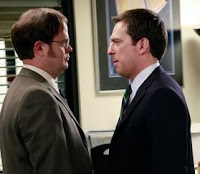
There are a lot of things going on in this chapter. I want to break down the cause O'Brien's revenge.
First of all, he talks about getting shot twice. I can't imagine what it would be like to get shot but I do understand where he is coming from when he gets angry at Bobby Jorgenson. The first time O'Brien gets shot, Rat takes care of him right away. On the plane to the hospital, O'Brien is not in much pain at all. He says his wound was throbbing and that is it. That is a huge difference from the second time he gets shot.
If i was Bobby, I would probably be slow and nervous, too. He just got there and he doesn't know any of the soldiers. I'm sure he was just trying not to mess up. Not to mention he didn't have nearly the experience that Rat had. O'Brien got such good treatment the first time and so that is what he is expecting again. Instead, he attended to very slowly and forced to lay there and be tortured by the pain.
When he gets back from the hospital, he's already mad because he doesn't feel like he fits in as well as he used to. He had been gone quite a long time. And we know in that time all he did was lay there and think about how he was going to get back at Jorgenson. If I were him, I would have made a plan of just how to get back at him. Either that or just walked up to him and punched him in the face. O'Brien is obviously not just going to get over the pain that Jorgenson put him through. He goes up to him the first time he sees him and Jorgenson basically apologizes and says how he was new and inexperienced. I love how O'Brien says "I hated him for making me stop hating him." (pg.190) He just wants to get him back really good and then move on with it. And that is exactly what he does.
"The need for revenge kept eating at me."-Anthropomorphism. Wow that's a long word.













